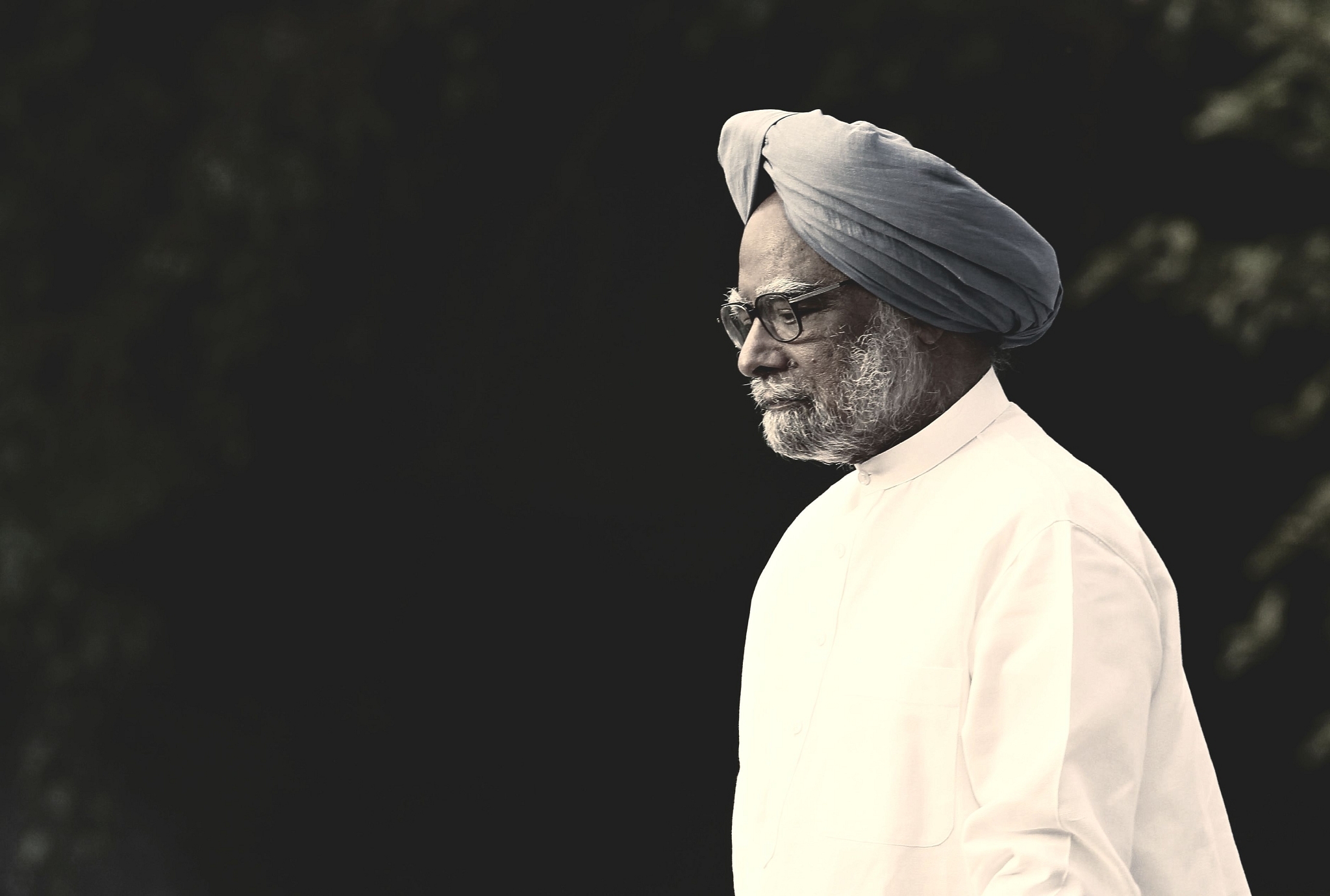Economy
Why Dr Manmohan Singh Shouldn’t Preach On Economy Management
- When Dr Manmohan Singh made the comments on India’s economy, was he speaking as a politician or as an economist?

Dr. Manmohan Singh. (Ajay Aggarwal/Hindustan Times via GettyImages)
I’ve often wondered how India’s former Finance Minister, Dr Manmohan Singh, would rate his economic performance as an economist, rather than as a politician. This question came to my mind because a bulk of the take-off in India between 2004-2010 could not be explained by the policy of the then government.
Many believed that the take-off happened due to the strong foundation of the National Democratic Alliance (NDA) government while others argued that favourable global climate combined with the policy to not do any damage to the economy was largely the reason behind United Progressive Alliance-1’s (UPA) economic record.
But what happened in UPA-2 is unfortunately the exact opposite.
It is precisely this reason why he should avoid talking about the state of economy given the extent of mismanagement that happened under his tenure. As a matter of fact, his prophecy that demonetisation would lead to a man-made crisis in the economy came out to be false as the economy did recover after a temporary blip.
As far as a hastily implemented Goods and Services Tax (GST) council is concerned, one should ask him and the Congress why it signed up for GST in the first place and if, they’ve brought up alternative suggestions in the GST Council.
Handful as they are, but still, Congress continues to govern multiple state governments and their respective finance ministers are a part of the GST Council.
It is juvenile for politicians to blame the GST because every party which is currently running a government in any of the states is a part of every decision that the GST Council makes.
Perhaps, just as we have detailed transcripts of the MPC members, we should have the same for GST Council meetings. That will go a long way in ensuring transparency of what transpires in the council thereby putting an end to the double-speak of major political parties on the issue of GST.
While one acknowledges the extent of slowdown that India has experienced over the last four quarters, the government would be better-off than take advice from the UPA years of 2004-2014.
The fact that we had decent growth during the early years of UPA had them convinced that revenue mobilisation in their later years will keep up. Consequently, we moved into an era of entitlements where we gave Right to Education, Right to Food and Right to Work.
I am surprised that the government didn’t extend the programme of giving rights further by announcing Right to Happiness.
The allocations went up in these programmes despite leakages and it often came at the cost of a slowdown in construction of public infrastructure. When revenue mobilisation failed to keep up due to a slowdown in growth, the government kept its expenditure up on these leaky programmes and what we had was a ballooning deficit combined with record high levels of inflation.
To be clear, fiscal deficits don’t themselves create inflation but instead it depends on the expenditure in the budget.
While we had a slowdown in growth, we witnessed a simultaneous increase in inflation, widening of our current account and the fiscal deficit. As a matter of fact, the fiscal stimulus in 2008 was announced in February which was before the North Atlantic Financial Crisis, which occurred in September.
The stimulus was announced not because of the crisis but instead because of the upcoming elections as the government announced a loan waiver.
We saw unprecedented levels of corruption scandals in the banking space as many loans were sanctioned without a detailed study of viability of the project. When the slowdown became worse in in 2011-12, companies started to feel the heat of past debts and the reluctance of the then government to clean up the banking sector resulted in accumulation of stress which culminated in the NPA crisis.
The fact that there were other corruption scandals such as the Commonwealth scam is a separate issue altogether.
There has been a definite clean-up in the banking space and in the overall economy under the Modi government, and in many ways, this clean-up was indeed required.
While growth has slowed, the government is on top of it as it makes policy announcements to address most of these problems. In all likelihood, a recovery will start from the second half of this year and growth should be back from next year onwards.
As far as the Congress is concerned, it’s better if it avoids giving advice on how to manage the economy given it own track record.
Support Swarajya's 50 Ground Reports Project & Sponsor A Story
Every general election Swarajya does a 50 ground reports project.
Aimed only at serious readers and those who appreciate the nuances of political undercurrents, the project provides a sense of India's electoral landscape. As you know, these reports are produced after considerable investment of travel, time and effort on the ground.
This time too we've kicked off the project in style and have covered over 30 constituencies already. If you're someone who appreciates such work and have enjoyed our coverage please consider sponsoring a ground report for just Rs 2999 to Rs 19,999 - it goes a long way in helping us produce more quality reportage.
You can also back this project by becoming a subscriber for as little as Rs 999 - so do click on this links and choose a plan that suits you and back us.
Click below to contribute.
Latest